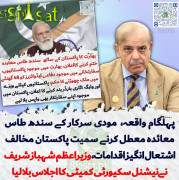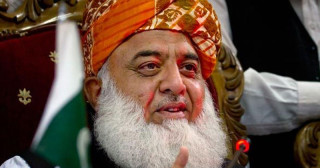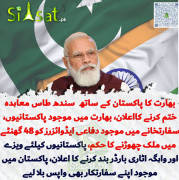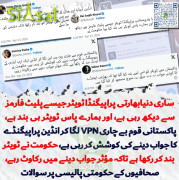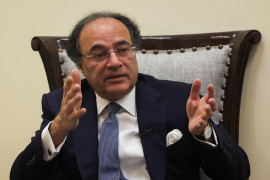bisaat
Banned
Deputy mayor to scrap unapproved KMC wings
21-Sep-16
Daily Times
KARACHI: Deputy Mayor Dr Arsahd Vohra has decided to abolish all Karachi Metropolitan Corporation (KMC) departments that were not approved by the Government of Sindh.
These include Motor Vehicle Department, Enterprise Investment Promotion, Charged Parking Recovery, and Disaster Management Department,
The total strength of employees in these departments stands at more than 1,500, and it was decided that these employees would be accommodated in other departments of the metropolitan body. The number of employees in the KMC's 24 government-approved departments is 16,926.
The employees released from Karachi Development Authority, Malir Development Authority, and Lyari Development Authority are to join different departments in KMC in pursuance of the order of Supreme Court of Pakistan Karachi Registry. (in order to make KMC poorer, more liable, KMC would pay all the salaries while Sindh Government will enjoy maximum profits though LDA, MDA and KDA)
The salary bill of the employees in 24 departments stands at Rs 7.42 billion, whereas the revenue receipts of these departments are around Rs 500 million annually.
A committee headed by the Senior Director, Human Resource Department, KMC, has been entrusted to suggest ways to streamline the process and submit a report to the deputy mayor within a week.
21-Sep-16
Daily Times
KARACHI: Deputy Mayor Dr Arsahd Vohra has decided to abolish all Karachi Metropolitan Corporation (KMC) departments that were not approved by the Government of Sindh.
These include Motor Vehicle Department, Enterprise Investment Promotion, Charged Parking Recovery, and Disaster Management Department,
The total strength of employees in these departments stands at more than 1,500, and it was decided that these employees would be accommodated in other departments of the metropolitan body. The number of employees in the KMC's 24 government-approved departments is 16,926.
The employees released from Karachi Development Authority, Malir Development Authority, and Lyari Development Authority are to join different departments in KMC in pursuance of the order of Supreme Court of Pakistan Karachi Registry. (in order to make KMC poorer, more liable, KMC would pay all the salaries while Sindh Government will enjoy maximum profits though LDA, MDA and KDA)
The salary bill of the employees in 24 departments stands at Rs 7.42 billion, whereas the revenue receipts of these departments are around Rs 500 million annually.
A committee headed by the Senior Director, Human Resource Department, KMC, has been entrusted to suggest ways to streamline the process and submit a report to the deputy mayor within a week.
Last edited:

















